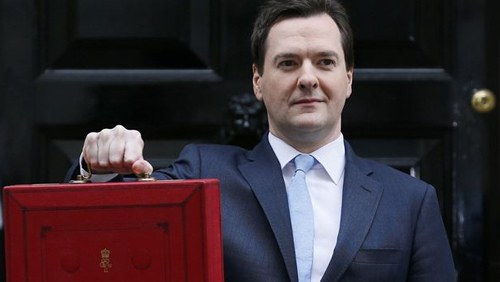
On Monday morning a new government green paper revealed that the current £9,000-a-year cap on tuition fees is being lifted in accordance with inflation and with a view to promote “high-quality teaching”. Universities that receive high ratings will be allowed to increase their tuition fees in an attempt to to get rid of quality “inconsistencies” in the UK university sector.
In reality this businesslike approach exploits future earners by trying to maximise what is collected back through repayments over a hefty 30 years. Although inflation itself is pretty low, it’s the lack of surety, which, passed from government to people, will allow for students lives and a young generation’s fate to be held in a state of flux by those in power, and brings back the memory of broken pledges – from Nick Clegg’s apology autotune debut, to a little letter from a certain Mr Osborne, as MP for Tatton.
But first, let’s take a look at tuition fees in terms of headwear. In 1997, senior civil servant Lord Dearing donned a No Fear cap, suggesting in a report that: “We therefore recommend that students enter into an obligation to make contributions to the cost of their education once they are in work.” This was accepted by the Labour government and put in place by September of 1998, with yearly tuition fees of £1,000. Serious stuff.
Since then, plenty of changes have occurred to the classic tuition fee/maintenance loan/maintenance grant combination, with various schemes of means tested bursaries and changes to financial help for students, which led only to the largest upheaval of the last 50 years in higher education, the Conservatives decision to up fees to a harrowing £9,000 a year in 2010.
After all the uproar this decision caused, students felt as if the worst had passed. It was a bitter pill to swallow, but we’re all in it together, right? But now, this new green paper is allowing the government to graduate to removing the cap on the current £9,000 – tossing our educations into the air.
The way in which tuition fee loans work at the moment are not necessarily even what they seem on the tin. Repayments are deducted from earnings above £21,000 at a rate of 9%, so an earner of £22,000 will pay back 9% of the £1000 over the £21,000 threshold. This repayment is expected to continue for 30 years, after which it is wiped. According to The Economist, in 2014 “one-fifth of 18-year-olds from the poorest backgrounds went to university, more than ever before”, due to the provision of student loans being provided by the government, and sure, in the short term, low-income teenagers have been provided with a boost to nab an education, with no up-front payments.
But, recent changes have also been made to the maintenance grant system for the students from lowest-income backgrounds for the academic year 2016-17. When I say changes, to put it bluntly, they have been scrapped and converted into the maintenance loan system – where the grant amount will be available as a loan, amplifying and somewhat upgrading the levels of debt required for the experience of simply attending university, and throwing the lowest-income students into more debt than their wealthier counterparts. Sadly, the real issue is in the long-term repayments, rather than this store card-esque approach to purchasing education.
As Chancellor of the Exchequer, it is George Osborne who is the face of all of these changes. But ironically in 2002, as MP of Tatton, he wrote to a former constituent, stating: “When I was at university 10 years ago, my education was free. Since then, the government has imposed fees, which mean that most students today pay more than £1,000 a year to go to university. Now they want to go further and introduce so-called ‘top-up fees’, which will mean students paying £3,000 a year for their education. To my mind, this is a tax on learning and is very unfair.
“There is lots of evidence that it is this fear of going into debt that most puts people from poorer backgrounds off going to university… As a result of listening to students and their families across the country, I thought you would be interested to know that the Conservatives have just announced that we will scrap tuition fees altogether when we are next in government. Education will once again be free for students.”
13 years is a pretty long time, and while 2002 was set in an absolutely different economic landscape, it seems that the Conservatives have come to prioritise their long-term economic plan over the welfare of students who bear the brunt of, in Osborne’s words, the “very unfair” tuition fees, leaving a young generation more disillusioned and isolated from those in power than ever before. The current irony of his words aren’t lost on us students, and the raising of tuition fees is an unprecedented betrayal – even from the Tories.

Britain’s policing was built on racism. Abolition is unavoidable

Against the binary: imagining a future of holding my chest high

How Pakistan’s Khwaja Sira and transgender communities are fearing and fighting for their futures






